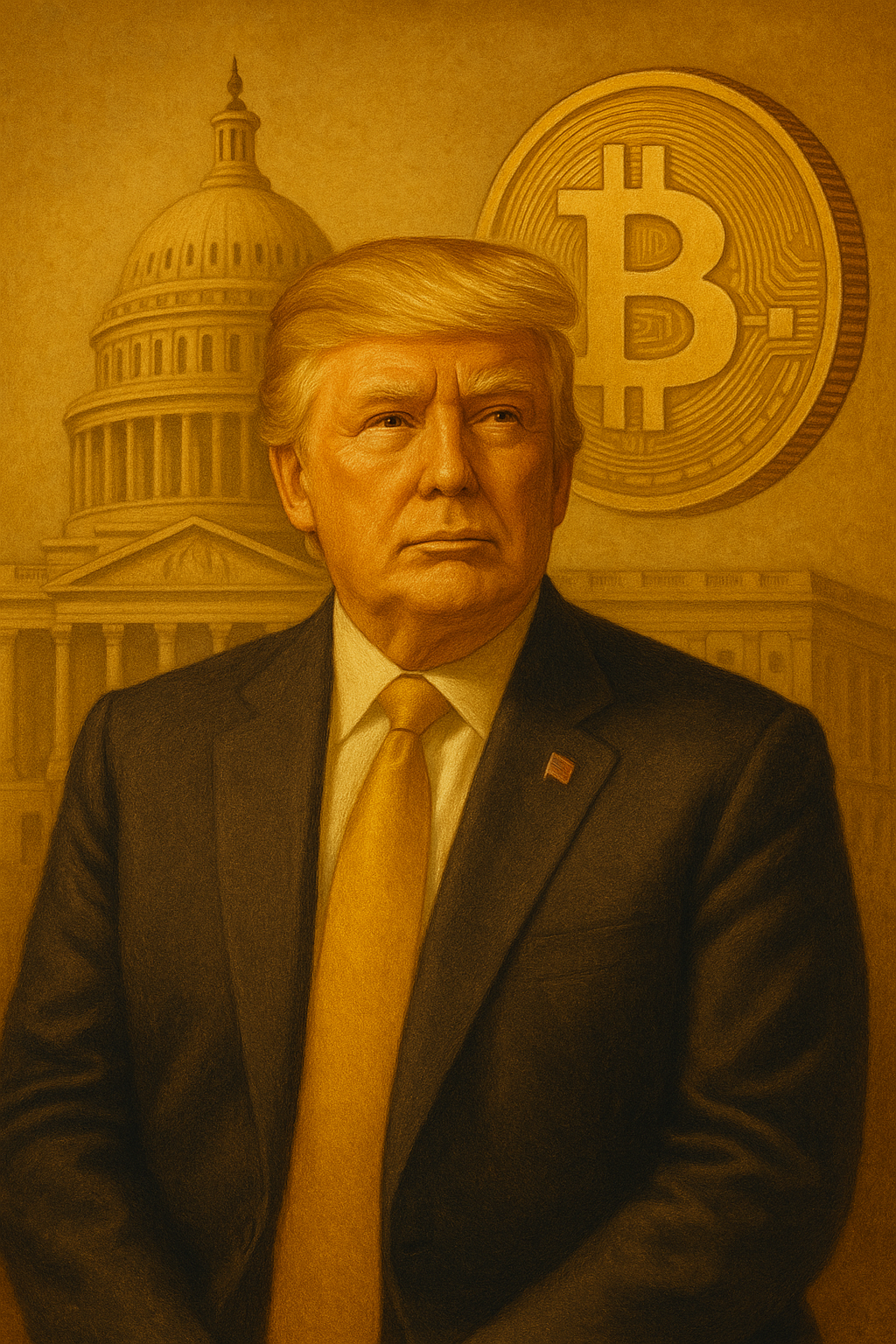Breaking news hit my phone at 5 a.m.—apparently Team Trump has lobbed an S-1 at the SEC for something dubbed the “Make America Bitcoin ETF.” Bitcoin briefly spiked to $105,450, Twitter Spaces erupted into all-caps euphoria, and I nearly choked on my burnt coffee. Everyone’s tweeting laser-eyed emojis again, but—call me the wet blanket—I’m not convinced this is the rocket fuel people think it is.
Here's What Actually Happened
The filing dropped late Tuesday, timestamped 8:42 p.m. ET. It lists 45th Digital Asset Management LLC as sponsor, with Donald J. Trump named in the “strategic advisor” line. Bloomberg’s ETF sleuth Eric Balchunas verified the doc’s CIK number on EDGAR; so, yes, it’s real paperwork, not a 4chan fever dream. The fund proposes to hold spot BTC—no Bitcoin futures gymnastics—and, get this, "may facilitate acquisition of BTC for U.S. strategic reserves pending legislative approval." That single sentence is what set Crypto Twitter on fire.
Price-wise, BTC rallied from $103,200 to $105,450 in under 17 minutes on Coinbase. Open interest on Binance’s BTC-USDT perpetuals ballooned by $600 million, according to Coinglass. But before you line up the champagne, note that funding rates went from +0.03% to +0.17%—traders are over-levering this headline to oblivion.
Now Here's the Interesting Part
I dug into the actual S-1 footnotes. The ETF would cap its initial assets at 25,000 BTC—roughly $2.6 billion at today’s price. That’s chunky but hardly nation-state reserve scale. And there’s no binding language forcing the U.S. Treasury to buy a single satoshi. It’s more marketing sizzle than statutory mandate. Think of it as Trump’s version of Michael Saylor’s laser-eyed selfies—political theatre designed to woo the crypto vote in an election cycle where every marginal constituency could swing Pennsylvania.
The Chart Doesn't Care Who Filed the Paperwork
Flipping to TradingView, BTC’s daily candle is printing a spiky gravestone doji right underneath the $105,800 resistance that rejected price on March 14th. Nothing magical about politics here: we’re still trapped in the same three-month range. The 50-day EMA sits down at $99,100, while the 200-day lurks at $88,600. Until we close above $107,300 with volume north of $40 billion, this is just headline-driven chop.
Glassnode’s Short-Term Holder Realized Price moved up to $101,900 yesterday. Translation? Late buyers are already underwater. If the filing stalls in an SEC dead-letter office—highly possible given Chair Gary Gensler’s déjà-vu hostility—those weak hands could panic-dump faster than you can say “basket of deplorables.”
Wait, National Reserves? Let's Pump the Brakes
Everyone’s tossing around El Salvador analogies, but remember: the U.S. isn’t a dollar-starved emerging market that needs crypto clout. The Treasury already prints the global reserve currency. Swapping a material slice of Fort Knox gold for BTC would ignite a geopolitical food fight bigger than TikTok’s Congressional hearings. I’m not entirely sure Trump—or any President—can ram that through without House and Senate backing.
“The President may not unilaterally alter the strategic reserve composition,”
reads Section 12 of the 1975 Energy Policy and Conservation Act. Sure, that statute covers oil, but the precedent stands: Congress guards the nation’s reserves like a toddler refusing to share candy.
Why This Matters for Your Portfolio
In my view, this filing is less about creating sovereign demand and more about jamming a wedge into Biden’s regulatory flank. If the SEC rejects the ETF, Trump can yell, “See, they hate innovation!” If Gensler approves, Trump claims victory and tweets a smug “#BitcoinIsFreedom” meme. Either way, we get volatility—great for traders, nerve-racking for newcomers.
On-chain, whale inflows to exchanges spiked 12% over the last 24 hours per CryptoQuant. That’s not HODL behavior; it’s liquidity prepping for outsized swings. If I were dollar-cost averaging, I’d be patient—set bids down at the 0.382 fib retrace around $98,400 and walk away from the screens. Your mental health will thank you.
Tangential Rabbit Hole I Can't Ignore
Remember when Trump called Bitcoin a “scam” back in 2021? Fast-forward to 2024, and he’s slapping his name on an ETF. It reminds me of Mark Zuckerberg pivoting to the metaverse minutes after grilling TikTok on data privacy. Politicians have the HODL conviction of a TikTok trend—here today, rug tomorrow.
Also, the filing date—April 2nd—falls smack in the middle of election primary season. Coincidence? I doubt it. Crypto lobby PACs poured $74 million into the 2022 midterms, per OpenSecrets. This ETF stunt is a cheap way to court that cash without spending campaign funds.
Where Do We Go From Here?
If the SEC acknowledges the filing next week (standard within 7 business days), a 240-day review clock starts. That means a final yay/nay would land somewhere around December 8, 2024—almost perfectly aligned with post-election lame-duck limbo. Odds are high the decision gets punted to the next administration. Meanwhile, the market will ping-pong on every rumor like a cat chasing a laser pointer.
I’d watch implied volatility on Deribit’s December BTC options. It’s already ticked up to 67%, but if it climbs into the mid-70s, selling call spreads could fund your holiday shopping while you HODL spot. Just don’t get greedy; IV crush after an approval/denial is brutal.
How the Community Is Reacting
Crypto Twitter feels split down party lines. Bitcoin Magazine editors are framing it as inevitable hyperbitcoinization. On the other side, Caitlin Long of Custodia Bank tweeted, “If we need politicians to prop BTC, we’ve already lost.” I lean closer to Caitlin’s camp. Bitcoin was designed to be antifragile to political whims, not a pawn in them.
Still, I won’t pretend I’m not amused. The spectacle alone is worth a popcorn subscription. Just remember: markets care more about dollar liquidity and hash-rate growth than campaign slogans.
Bottom line? Enjoy the fireworks but keep your risk tight. The Trump ETF headline is a narrative sugar rush, not a fundamental vitamin. If you’re a long-term believer in Bitcoin sovereignty, nothing about this filing changes your thesis—or your cold-storage setup—one bit.



